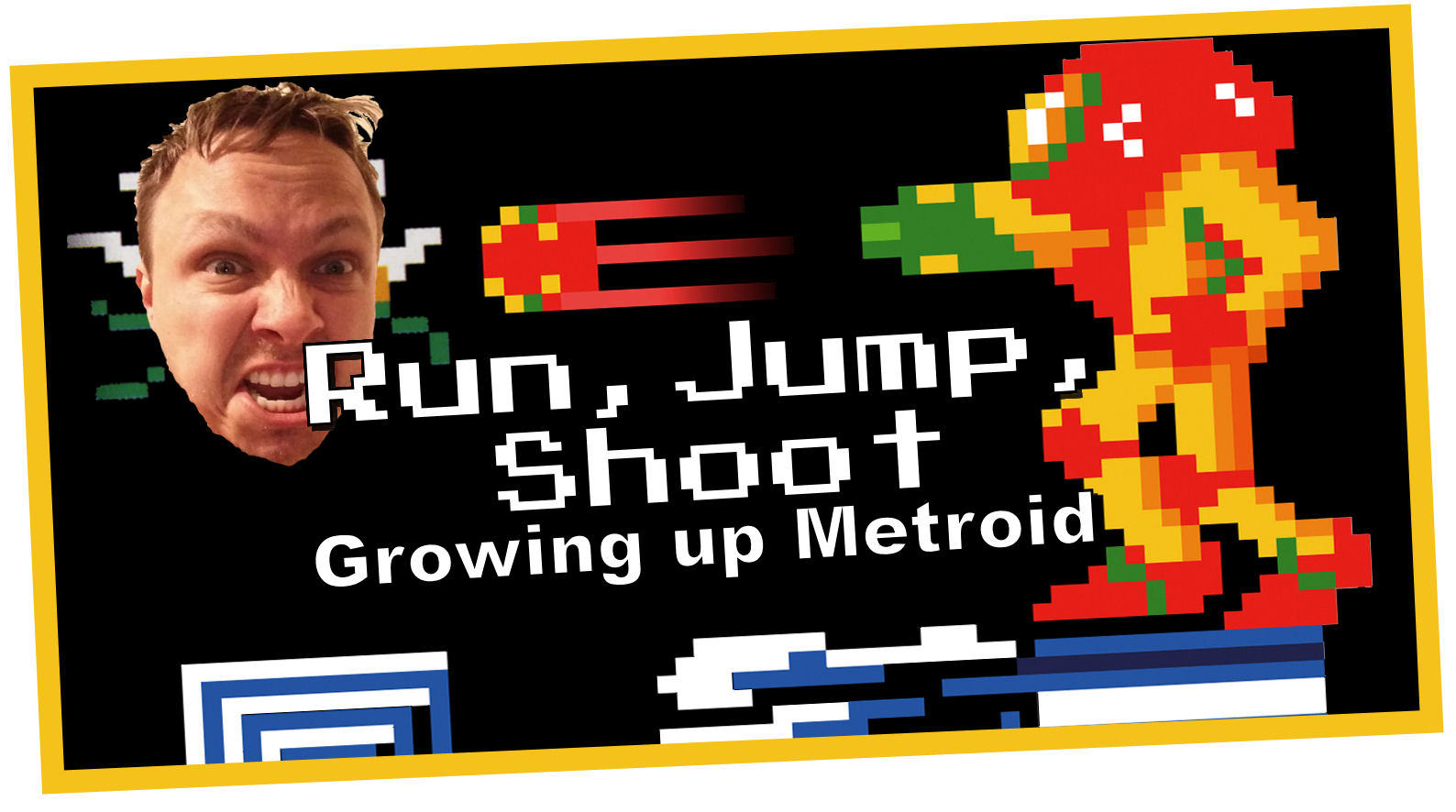Why Are Video Games Announced So Early? | Hey Future Caleb [VIDEO]
Video games are announced early for many reasons, but despite how valid those reasons are it’s sometimes hard for us gamers to appreciate how important early announcements are. Games cost a lot of money to make. And early announcements are largely based on the need for pre-orders.
Transcript(ish)
Hey Future Caleb, in the year 2078, is Metroid Prime 4 out yet? Or are you, in the future, like us in the past, sitting idly by as video game publishers dangle triple AAA game releases in front of wanting gamers, then for sick kicks those publishers just lean back and monitor fan buzz from underground bunkers which have been repurposed from their original use as vault models for the next Fallout game. And these bunkers are decorated beautifully, by the way, wallpapered in gamer hope made physical through a distillation process that takes those gamers’ tears of joy, boils away the non-essential emotional trauma and physical pain tears, until a concentration of pure hype-fueled happiness results that is then added to wallpaper paste and used to glue promotional posters and uncut factory line game boxes to the vault walls. This concept will, of course, be sold later as a DLC interiors package.
I hope you, Future Caleb, aren’t subject to this convoluted future dystopia. I hope that get your game announcements, and the promised games, on time, every time, without a single tear shed, let alone captured for nefarious wall paper purposes.
And some game industry experts would suggest my hope is reality. Some say, back here in the past, that as digital distribution inevitably comes to dominate the gaming market, the window between announcement and release will shorten. Dominic Matthews, the product development manager for Ninja Theory, says in a 2014 article for the spammy-sounding-but-it’s-not website GamesIndustry.biz that as digital distribution entrenches itself “there won’t be such pressure to drive pre-orders as there is in the retail space.” Now, this was back in 2014, and in only 3 years time I’m pretty comfortable with suggesting that Matthews, the industry expert that he is, may have been a bit premature with his suggestion that pre-orders wouldn’t matter as much in the digital space. As an oft-purchaser of games, I still find that pre-orders for digital games are promoted just as heavily as physical games. And I admit I’m a sample set of one, and I know we haven’t transitioned to an all digital marketplace, which, I should be fair, is what Matthews’ comment is based upon. But wow, I just can’t imagine a world without pre-orders. Perhaps that’s the real question for you Future Caleb: Are game pre-orders still a thing?
So why all this talk about pre-orders. This video is about early announcements, right? Well, according to more industry experts from that same GamesIndustry.biz article, pre-orders are a huge reason why some games have such large gaps between announcement and release. And it seems to have started with the success of the PlayStation 2. The PS2 launched a boom in the industry, which made retail for video games simply more important than it ever was. And where competition increases, costs increase, meaning marketing dollars must increase.
Christian Svensson, who has worked in the business development side of video games for over a decade, says, “around the time that Xbox 360 and PS3 came to market the investments and risks were so high you had to do everything you can to build awareness earlier…You had to build in more beats for your PR earlier, you had more shows to attend to drive hands-on and media exposure, and all of that was ultimately in the name of driving up your pre-order numbers… everyone was trying to lock down the day one consumer.”
The day one consumer is incredibly important. Any business demands cashflow, and day one represents the first day cash can start flowing. A developer begins to recoup their costs on day one, and the velocity implied by a good day one sets the financial tone for the entire project, and in many cases the entire company. Big-budget developers live and die on day one, meaning pre-orders are important, meaning long announcement windows are necessary.
The pre-release buzz that comes from an early announcement can also fuel a development team. While such early media coverage can put added pressure on a team, as Warren Spector, Director of the Denius-Sams Gaming Academy at the University of Texas at Austin says, “on the flip side, seeing public excitement about what you’re doing can get a team ‘psyched and cranking’ as we used to say. It’s nice when people express enthusiasm for what you’re doing.”
There are other benefits as well. Early announcements contribute to public understand of the industry itself, help with recruiting talent for the in-development projects, helps to attract investors, and, believe it or not, announcing early reduces the chance that a game will be canceled. Canceling a game after it has been announced raises questions about the integrity and competency of a development company.
But, important to note is that most of what I’ve talked about here primarily affects large development studios with hundreds of millions of dollars on the line. Early announcements for small budget and indie titles, at least from marketing departments outside of the developers themselves, simply aren’t robust enough in terms of features to fill out a nine-month campaign. Hitting all the PR beats during such a long run is resource intensive and expensive.
So how does all of this affect gamers? Well, in the sense that pre-orders–and by proxy, early announcements–help the games launch with more polish, more complete features, and more marketing which is necessary to justify investment in more expensive games, early announcements do positively impact gamers. But just as I can claim early announcements are good, there are plenty of examples where early hype has bred over-promises and eventual disappointment upon release. I’m not ignorant of that fact.
But what if we remove the business side and focus only on the emotional side? Arguments then both in favor of and against early announcements are equally valid. A recent episode of the Cartridge Club postcast, which was the impetus to this video, featured the hosts arguing each side of this very question. If you aren’t yet subscribed to the Cartridge Club Podcast, or aren’t yet part of the Cartridge Club forums, you aren’t doing life right.
So, Future Caleb, back to Metroid Prime 4, which I hope you are playing right now. I hope it hasn’t gone the way of Scalebound or Silent Hills. As you recall, Metroid Prime 4 was announced way back here in 2017. So why am I talking about it? Well, despite all of the business reasons listed above for early announcements, I feel the Metroid Prime 4 announcement represents something as close to altruism as a game company can get, especially when dealing with a PR strategy–as early announcements are–that is designed specifically with the bottom line in mind.
I feel the Metroid Prime 4 announcement represents the purest form of the early announcement strategy. The game wasn’t compromised by leaks. There isn’t currently any game footage that might distort expectations. The announcement itself was visually supported by very limited assets. And because Metroid hasn’t been a money-making franchise for Nintendo, making more games in the franchise is a risky proposition. This is as clean a slate as any game developer can ask for, and so as gamers, we should look to the Metroid Prime 4 announcement as the best possible way such early announcements can be done.
When Nintendo of America President Reggie Fils-Aime tells Polygon, “We wanted to make it clear that Metroid is an important franchise for us…we needed to make sure [Metroid fans] understood there was a great console experience coming…” as a Gamer, I feel…good. Maybe I’m too hopeful that fan-friendly corporations still exists in this world, but I believe Fils-Aime.
Oh, and if in the future Scalebound or Silent Hills has been resurrected and is available to play in the year 2078, don’t send a time traveling spoiler machine back here to tell me so, Future Caleb. I don’t like knowing about a game 60 years before it comes out. As important as early announcements can be, there’s a limit.
Tell me in the comments below, what do you prefer: early announcements or announcements just a couple months before release.
Please like, subscribe, click the bell notification icon. I have a goal to get my videos to reach an average of at least 100 views by the end of the year. Sharing this video with your gaming friends would help a lot toward that good. And if you are still watching this video, you obviously like it, right?
Oh and last thing, it’s totally unfair that I even mentioned Fallout at the beginning. Bethesda is a game publisher that is uniquely positioned to avoid early announcements. They’ve made it part of their mythos to announce games at E3 that are very close to release. And as a big fan of Bethesda, I appreciate that.
Mentioned
Sources/Credits
- “Why games are revealed so early in development”
Metroid Prime 4 announcement teaser - “Nintendo: Metroid is ‘an important franchise for us’”
Music Credits
- 8bit Dungeon Level Kevin MacLeod (incompetech.com), Licensed under Creative Commons: By Attribution 3.0 License, http://creativecommons.org/licenses/by/3.0/
- Take the Lead Kevin MacLeod (incompetech.com), Licensed under Creative Commons: By Attribution 3.0 License, http://creativecommons.org/licenses/by/3.0/


